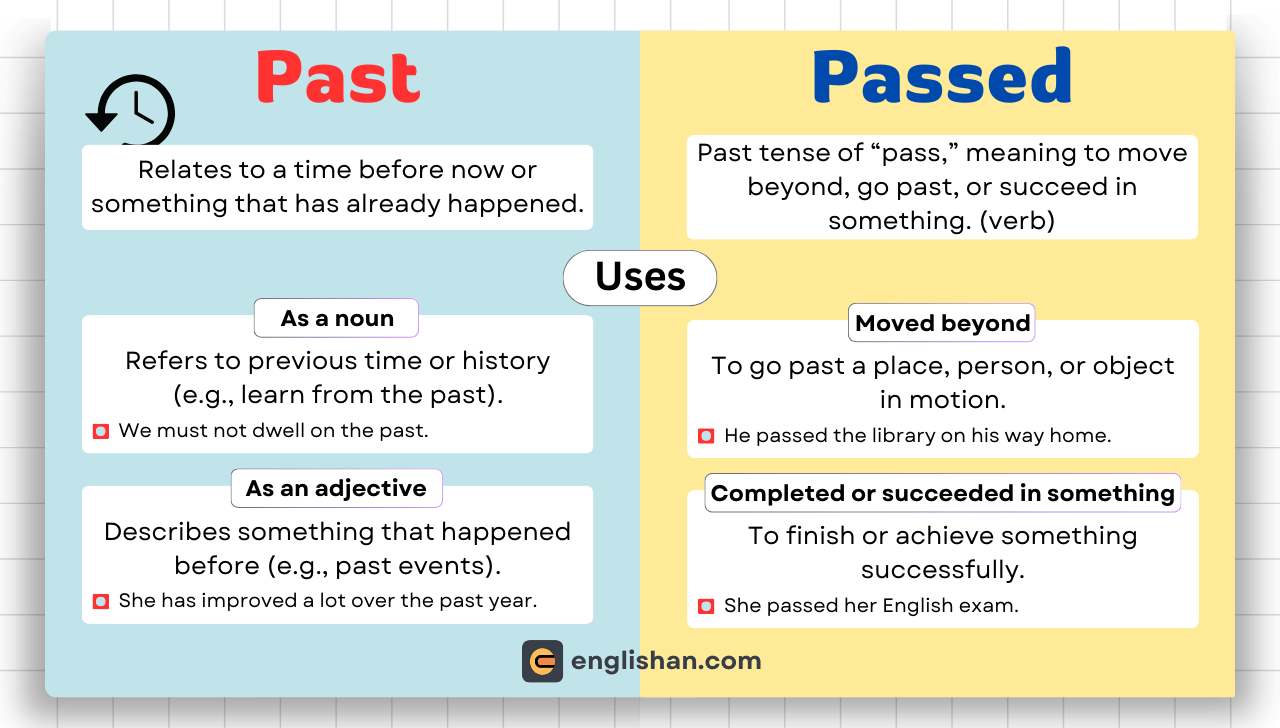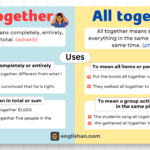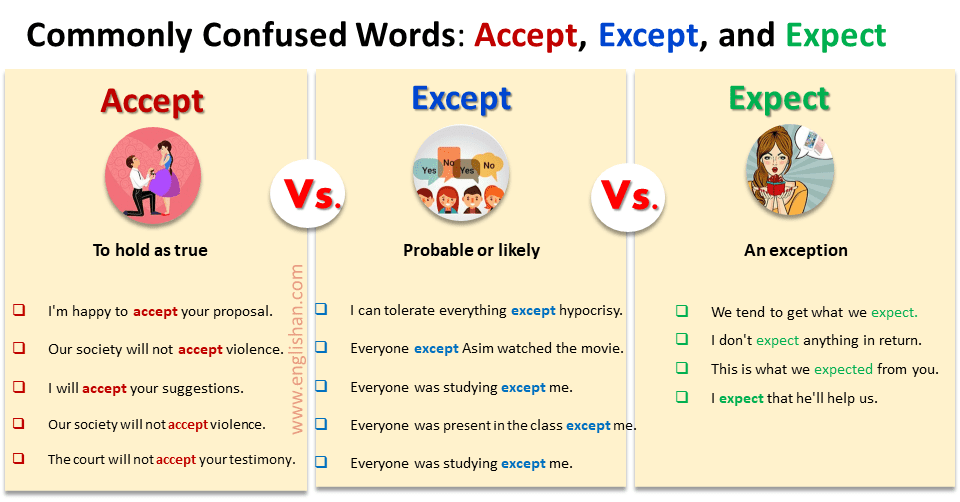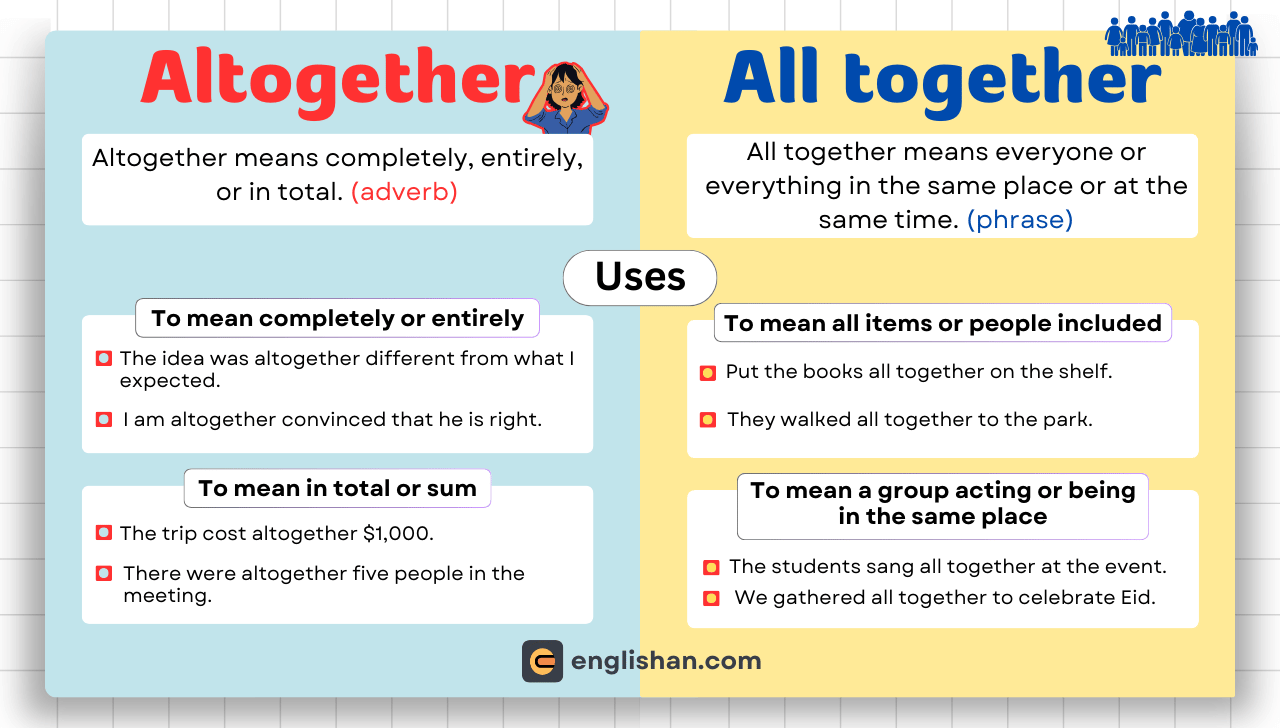Many English learners confuse past vs passed because they sound similar, but they have different meanings and uses. Past refers to something that happened earlier, while passed is the past tense of “pass,” meaning to move or go by. Understanding their differences will help you use them correctly in sentences. Learn more about other commonly confused words by visiting our Confused Words section.
Meanings of Past and Passed
Past
Past (noun, adjective, preposition, or adverb) relates to a time before now or something that has already happened.
- The past few years have been challenging. (Previous time period)
Passed
Passed (verb) is the past tense of “pass,” meaning to move beyond, go past, or succeed in something.
- He passed by our house this morning. (Moved beyond)
Differences Between Past and Passed
| Aspect | Past | Passed |
|---|---|---|
| Meaning | Refers to a previous time or event | Refers to the act of passing or moving by |
| Usage | Used as a noun, adjective, adverb, or preposition | Used only as a verb (past tense of “pass”) |
| Part of Speech | Noun, adjective, adverb, preposition | Verb |
| Example | We should learn from the past. | He passed his driving test. |
| Memory Trick | Think of “history” when you see past | Think of “movement” when you see passed |
Usage of Past
1. As a noun (a time before now)
- We must not dwell on the past.
- The past teaches us valuable lessons.
2. As an adjective (describing something previous)
- She has improved a lot over the past year.
- His past experiences shaped his career.
3. As a preposition (meaning beyond a certain point)
- The car drove past the mosque.
- We walked past the market.
4. As an adverb (showing movement beyond a point in time or space)
- He hurriedly ran past.
- The days went past quickly.
Usage of Passed
1. To mean “moved beyond”
- He passed the library on his way home.
- The train passed through the tunnel.
2. To mean “completed or succeeded in something”
- She passed her English exam.
- Bilal passed his driving test last week.
3. To mean “handed something over”
- He passed the book to Aisha.
- The waiter passed the menu to us.
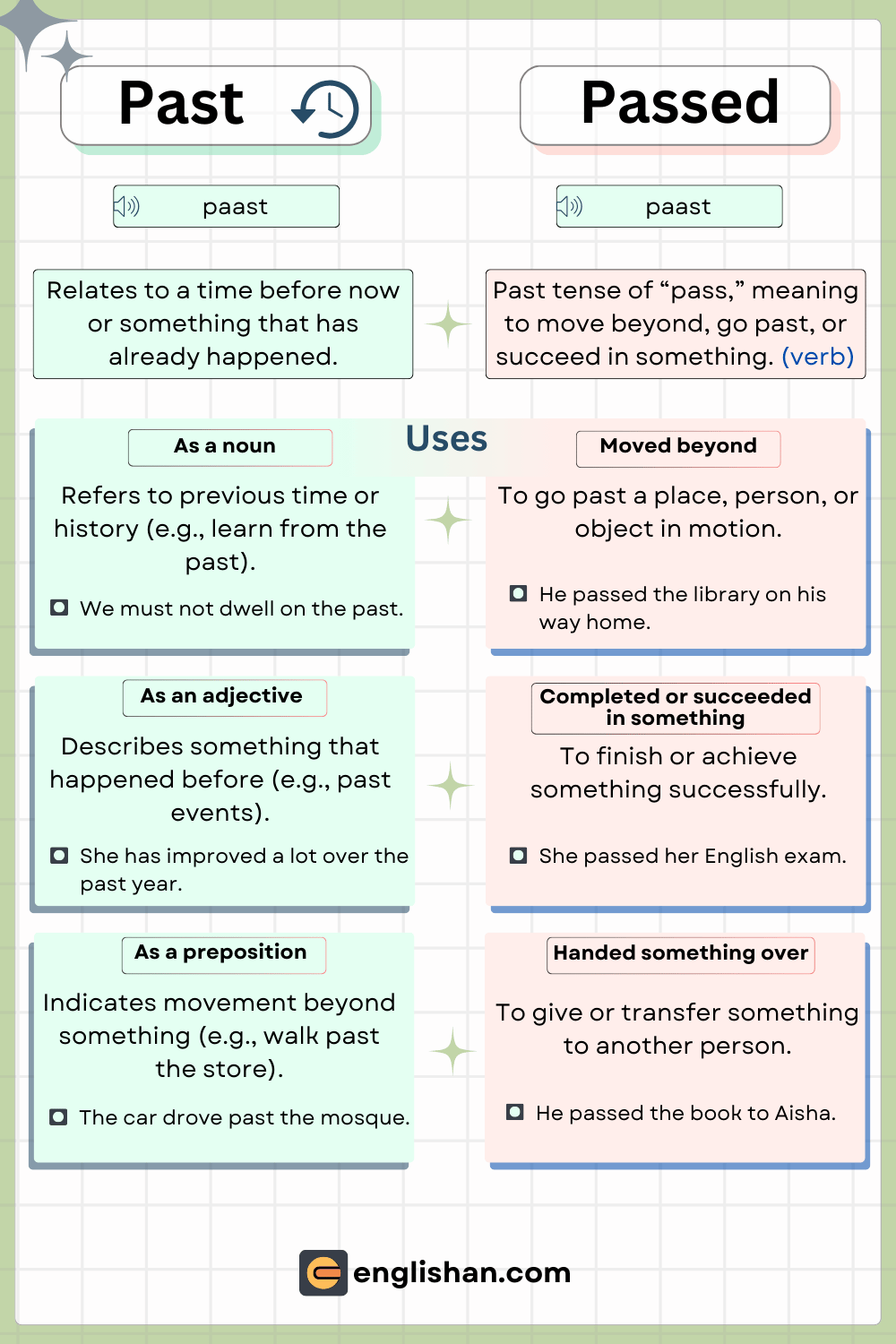
Formal and Informal Uses of Past and Passed
| Use | Past Example | Passed Example |
| Formal | The past decade has seen great changes. | The new law was passed by the government. |
| Informal | I remember the past so well. | She passed me a note in class. |
FAQs
1. How can I remember the difference between past and passed?
Think of past as related to “time” or “history,” while passed involves an action, like “movement” or “success.”
2. Can “past” and “passed” be used interchangeably?
No. Past refers to time or position, while passed is the past tense of “pass.” Using one instead of the other can change the meaning.
3. What is an example sentence using both words?
Zain passed by the old house where he had spent his past summers.
You May Also Like
